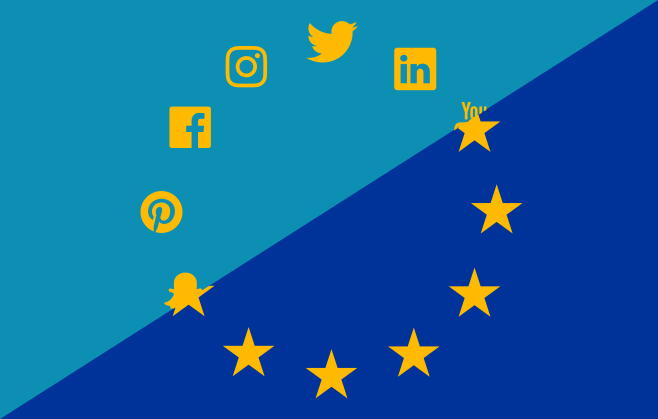
Brexit- Did social media get it right?
However you feel about the outcome of the EU Referendum, there’s no denying that it has dominated online conversation. With this in mind, how did the debate play out on social media, and was online opinion an indicator of the result?
Within just over 24 hours between polls opening and the result’s announcement, there were around 6.4 million tweets posted using the hashtag #EUref. This was accompanied by a sharp influx of Google searches relating to Brexit, with a 250% rise in the number of searches for the question, “What happens if we leave the EU?” There was also an 100% rise in UK searches for the phrase “getting an Irish passport”, as searchers clearly considered the future stability of the country.
While these facts comprised the culmination of activity from both sides, sentiment was gauged in the weeks leading up to the result, with social conversation seeming to indicate a marginal swing towards the “Remain” brigade. Analysts revealed that there was in fact a 58% majority for social media posts containing the #remain hash tag, as opposed to #leave. This was even the case up until the day before the result, showing in this case, social media prediction was clearly off. It’s evident though that in this case, the outcome and what played out of social media was never going to show a correlation- those wishing to remain generally erred on the side of the younger generation, who are of typically more active on social platforms. However, trend analysts, economists, and the bookies, showed confidence in the UK remaining in the EU, which was reflected by social media chatter- therefore, while social media noise didn’t in this case match up to the final outcome, it did echo sentiments at the time.
In the run up to the event, it was great to see social platforms themselves encouraging users to vote. Amongst the best was Twitter’s incentive, with the site tweeting, “Voting today? Tweet using #iVoted to unlock a special election emoji,” which succeeded in making the hashtag a trending topic in the UK once the polls opened. Snapchat nicely interwove the announcement into new filters, revealing information on the event, poll opening hours, and the #iVoted hashtag too, which no doubt sparked action amongst its younger audience. Facebook sent a clear message to its users, posting an update at the top of peoples’ NewsFeeds reminding them of the upcoming event, and urging voter turnout. Google followed suit with a similar message, displayed underneath its homepage search bar. This was also complete with a link taking the user through to a Google + page to reveal further information about the event.
Amongst the more serious conversation topics, social media users were as ever quick to inject a little humour into the proceedings. After the outcome, people took to social channels to post updates such as, “Say goodbye to croissants, people. […] We’re stuck with crumpets FOREVER”, and many shared images making comparison between various other continental and British food items. The matter of potential inflation was also jokingly alluded to, with online users sharing images of items sold at ridiculous prices, and doubling posting images of UK currency labelled at higher values.
We’d love to hear your thoughts on the news- were you involved in the online debate? Please tweet to us @PracticeDigital and share your comments on our Facebook page.




